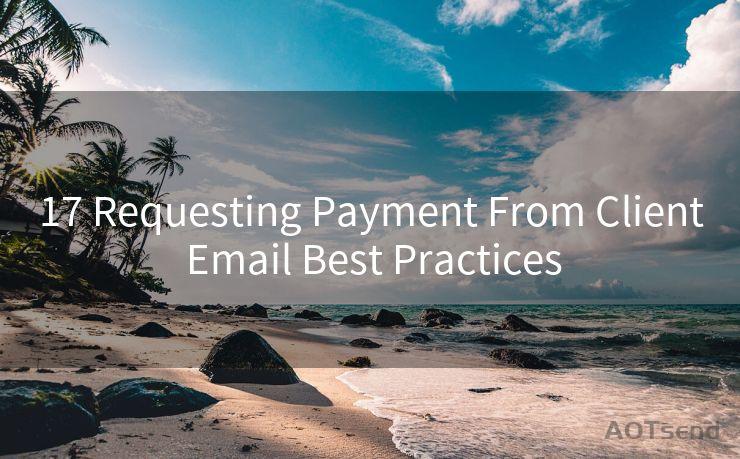17 Requesting Payment From Client Email Best Practices




Email communication remains a crucial part of business transactions, especially when it comes to requesting payments from clients. To ensure a smooth and professional exchange, here are 17 best practices to follow when sending payment requests via email.
1. Clear and Professional Subject Line
Start with a clear and to-the-point subject line that reflects the purpose of your email, such as "Payment Request for [Service/Product] - [Invoice Number]". This helps the recipient understand the email's content immediately.
2. Formal Greeting
Always begin your email with a formal greeting, addressing the client by name if possible. This personal touch establishes a polite and professional tone.
3. Introduction and Context
Briefly introduce the purpose of the email, mentioning the service or product provided and the associated invoice number. This sets the context for the payment request.
4. Detailed Invoice Information
Include all relevant invoice details, such as the invoice date, total amount due, payment terms, and the due date. Clarity is key to avoiding any confusion.
5. Payment Options
Provide clear instructions on how to make the payment, including accepted payment methods, bank account details, or any online payment platform you use.
6. Polite Language and Tone

Maintain a polite and respectful tone throughout the email. Avoid sounding demanding or impatient, as this could alienate your client.
7. Reminders and Late Fees
If applicable, gently remind the client about any late fees that may apply if payment is not received by the due date.
8. Thank You Note
Thank the client for their business and express appreciation for their prompt payment. Positive reinforcement encourages future timely payments.
9. Contact Information
Provide your contact information in case the client has any questions or needs further assistance.
10. Professional Signature
End your email with a professional signature that includes your name, position, and company details.
11. Follow-Up Emails
If payment is not received by the due date, send a follow-up email to inquire about the status of the payment politely.
12. Avoid Frequent Reminders
While follow-ups are necessary, avoid sending too many reminders as this can be perceived as pushy.
13. Use Templates Wisely
Although templates can save time, customize them to fit each client's specific situation for a more personal touch.
14. Confidentiality and Security
Ensure that all financial information shared via email is secure and encrypted, protecting both you and your client's privacy.
15. Double-Check Attachments
If attaching an invoice or other documents, double-check that you've attached the correct files before sending.
16. Proofread and Spellcheck
Always proofread your email for grammar and spelling errors. Professionalism is key in business communications.
17. Track Your Emails
🔔🔔🔔
【AOTsend Email API】:AOTsend is a Managed Email Service for sending transactional emails. Support Email Types: reminders, authentication, confirmations, notifications, verification codes, invoices, password resets, account activations, billing statements, two-factor authentication (2FA), and one-time passwords (OTP) emails, etc. $0.28 per 1000 Emails. 99% Delivery, 98% Inbox Rate.
You might be interested in:
Why did we start the AOTsend project, Brand Story?
What is a Managed Email API, How it Works?
Best 25+ Email Marketing Platforms (Authority,Keywords&Traffic Comparison)
Best 24+ Email Marketing Service (Price, Pros&Cons Comparison)
Email APIs vs SMTP: How they Works, Any Difference?
Consider using email tracking tools to know when your email has been opened and read, helping you manage follow-ups more effectively.
Adhering to these best practices when requesting payment via email can significantly enhance your communication with clients, leading to smoother and more efficient business transactions. Remember, the goal is to maintain a positive relationship with your clients while ensuring timely payments.




Scan the QR code to access on your mobile device.
Copyright notice: This article is published by AotSend. Reproduction requires attribution.
Article Link:https://www.mailwot.com/p4675.html



